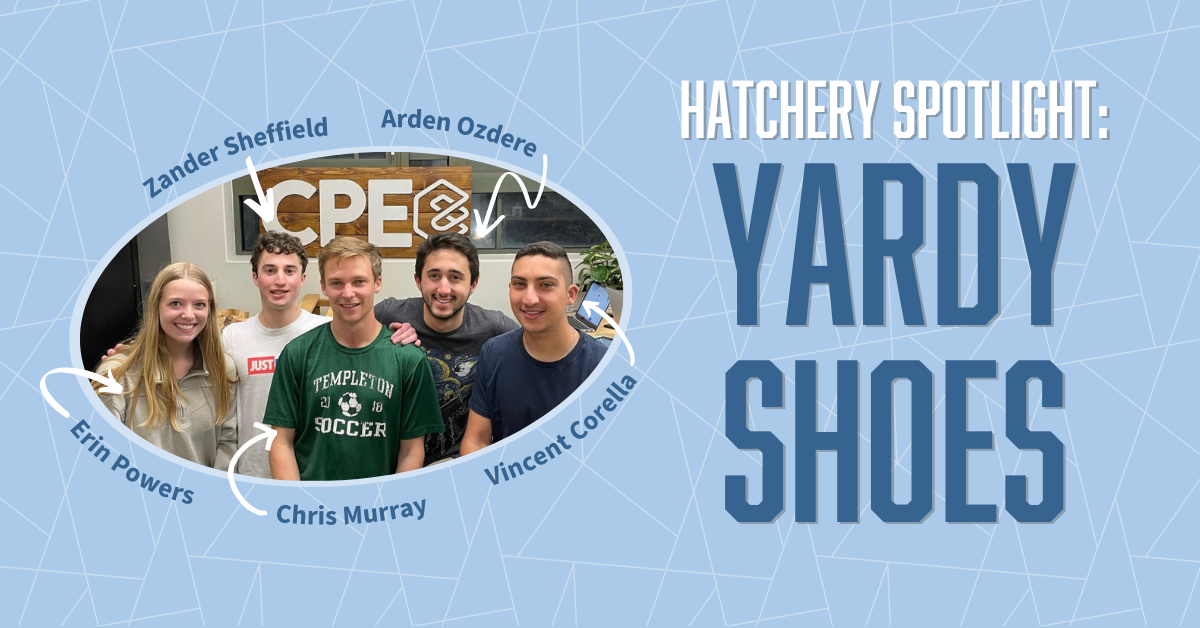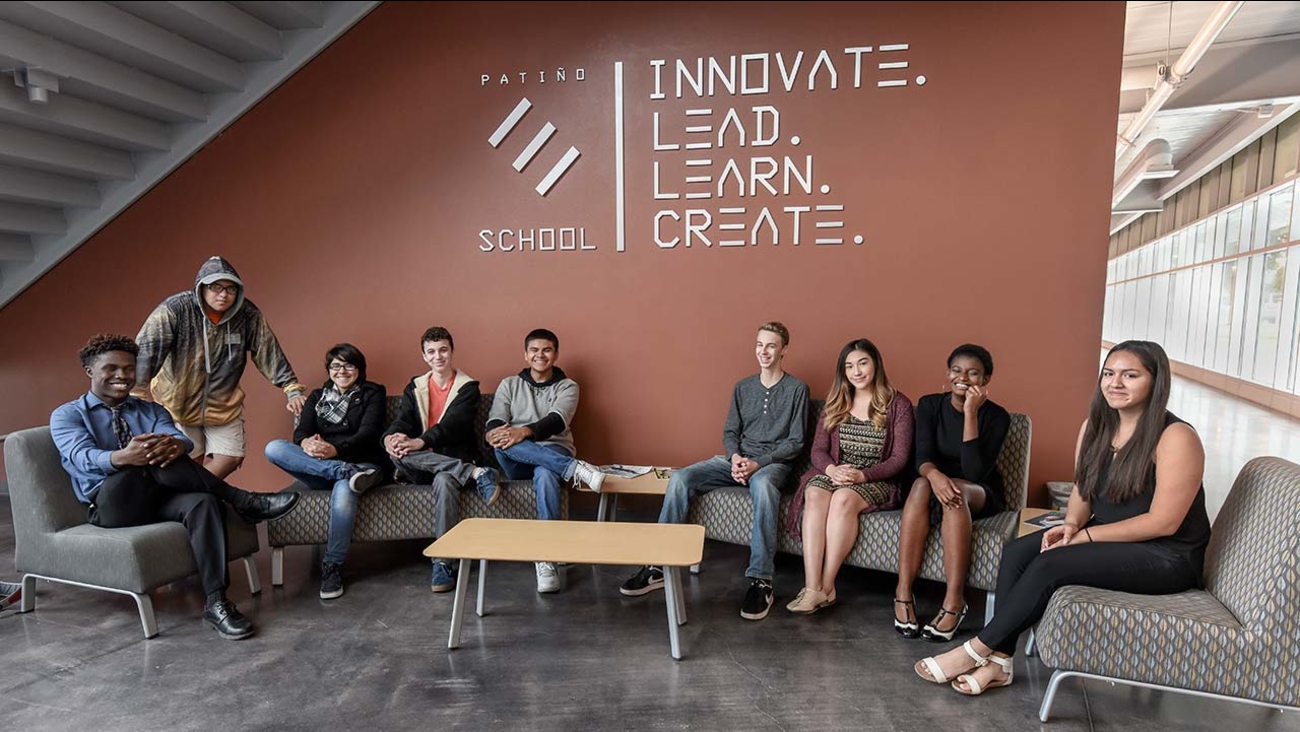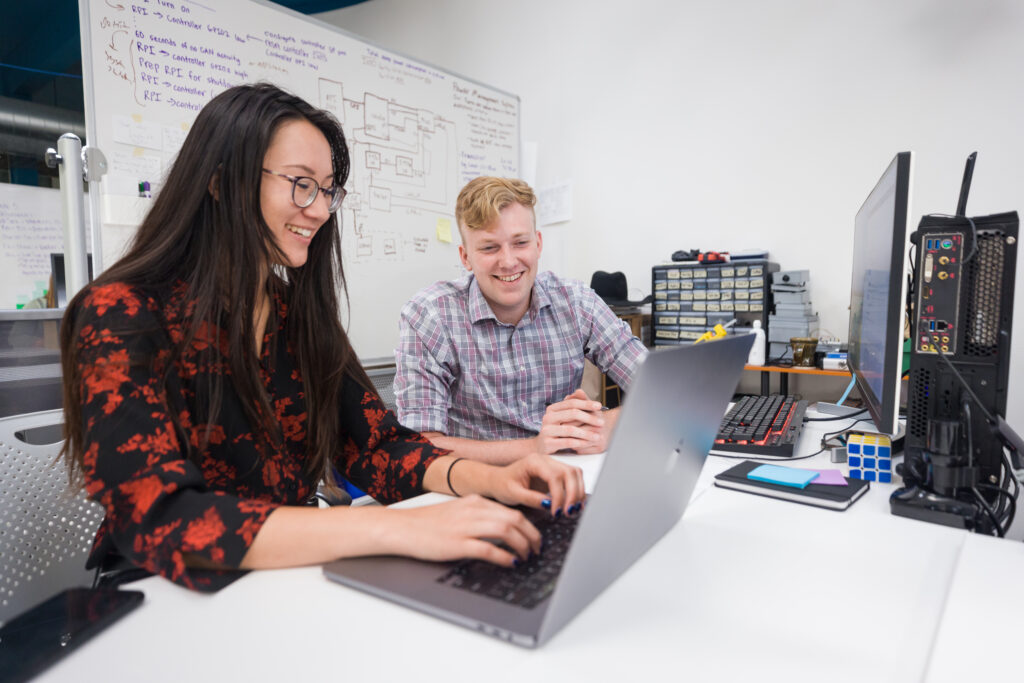Female representation within the entrepreneurship industry is steadily growing. The number of women-owned businesses is increasing faster than the number of businesses overall, according to Forbes Business. Despite this trend, however, the space is still male-dominated, with only 36% of small businesses owned by women worldwide.
New female entrepreneurs encounter challenges that generally do not exist for their male counterparts. Women — especially young women — don’t align with the traditional image of an entrepreneur. This puts them at a disadvantage when meeting with investors and other industry professionals.
Roxanne Miller is one of three co-founders of TractorCloud, a startup developing a hardware-software solution that will help operations managers monitor the predictive maintenance of their vehicles. The startup is still in its early stages, and Miller and her co-founders, both male, are frequently meeting with potential venture capital investors (VCs).
Miller found that her co-founders are able to effortlessly connect with VCs, 81% of which are male according to Forbes Business.
“Because VCs tend to be white males, my co-founders can identify with them,” Miller said. “They have a lot of similar interests and experiences. For me, it’s more of a balancing game. I have to think about how I’m presenting myself, and it takes a little bit more effort to figure out how to connect with them.”

Roxanne Miller and her co-founder, Morgan Swanson.
VCs are proven more likely to invest in male-led startups. White males control 93% of venture capital dollars, according to Forbes Business, and only 2% of raised VC backing went to female-founded startups in 2017, according to Entrepreneur Magazine.
For Miller, TractorCloud’s male co-founders can act as allies, and are sometimes able to mitigate this issue.
“My male colleagues can support me, give me the floor when it’s my turn to talk and show potential investors that I’m trusted with our business,” she explained.
But for female-founded businesses, Miller said, “figuring out how to connect with those male VCs on a level that makes them excited about investing in your company can sometimes be a roadblock.”
Christina Grigorian and Camila Monchini, founders of women-led startup For Mom Care, struggle to not only connect with potential investors, but convince VCs that their mission is worthwhile.
For Mom Care is building a postpartum recovery platform that provides holistic support to ensure mothers properly heal after birth. Since founding the company in April of 2021, Monchini and Grigorian found that most cis-gendered males are unaware of the physical and mental toll of childbirth.
“Our biggest fear going into this was how we were going to convince a bunch of men that [postpartum care] is really important,” Grigorian said. “It’s an issue that they won’t 100% understand. They’re not women, and because there’s a stigma around not being okay after giving birth, their wives likely haven’t spoken about it.”
Grigorian and Monchini must prove to potential investors that problems exist within the postpartum space before they can showcase their startup as a viable solution. The For Mom Care startup pitch is very problem-centric compared to other early-stage startup pitches.
“If you compare our pitch to other startup teams’ pitches, they talk about their problems for one or two slides,” Grigorian said. “We have six or seven slides on our problem.”
Another challenge when pitching to investors, said Grigorian, is establishing credibility.
Grigorian and Monchini are both biomedical engineers, but because they are not mothers, VCs and other industry professionals often question why they are interested in postpartum care. Grigorian, who has both a bachelor’s and master’s degree in biomedical engineering, believes her credibility is brought into question because of the deep-rooted gender bias in both the entrepreneurship and healthcare industries.
“Women in the healthcare space are not taken seriously,” Grigorian said. “I 100% believe that if there was a man standing behind us on stage, no one would question what makes us credible.”

Graphic by Rachel Weeks
And Grigorian’s belief is not unfounded. A recent study conducted by the Harvard Business Review found that investors prefer startup pitches presented by male entrepreneurs over those presented by female entrepreneurs — even when the content of those pitches is exactly the same.
When pitching their startup, Grigorian and Monchini go out of their way to establish their credibility and stress that they have both the passion and the skills to bring For Mom Care to fruition.
“At the beginning of our pitch, we say we’re the two biomedical engineers so [investors] know we’re not just two random girls standing up there,” Grigorian said. “Saying ‘engineer’ gives you a certain amount of credibility.”
Tessa Luzuriaga, co-founder and CEO of OdinXR, faces similar challenges. OdinXR is a startup developing a virtual reality where engineering students and professors can conduct hands-on experiments during online learning. Luzuriaga, an electrical engineering student, founded the company after watching her professors struggle to adapt lab classes to an online format during the COVID-19 pandemic.
It was her passion for engineering that inspired Luzuriaga to found OdinXR, but people often assume that her interest is rooted in the educational aspects, not the technological components, of the company.
“People assume I don’t know anything about computers, when in reality, I’m doing this because I’m an engineer and I know VR hardware to an obsessive amount,” Luzuriaga said. “I’m constantly validating myself. I have to work that much harder to prove that people should be listening to me.”

Tessa Luzuriaga and her co-founder, Ali Mohammad.
Luzuriaga feels that because she is a woman in a male-dominated industry, people expect less of her and hold her to lower standards than they do her male counterparts.
“Sometimes it feels like there’s more positivity than I deserve, and I’ll very candidly say, ‘No, you should not be applauding this right now,’” she admitted.
When meeting with industry professionals alongside her male co-founder and all-male team of engineers, Luzuriaga works to “not make gender a thing,” and instead “walks into the room with the same confidence that any one of [her] male peers would.”
She hopes that, as female representation in entrepreneurship increases, gender will no longer be an influential factor in the success of an entrepreneur.
“My biggest hope is that when a woman walks into the room, the initial thought isn’t ‘Oh cool, another woman entrepreneur,’” she said. “It’s ‘Oh sweet, there’s another entrepreneur.’”
Camila Monchini of For Mom Care echoed similar sentiments.
“It would be amazing if in the future, when we think of an entrepreneur, there isn’t necessarily a gender assigned to it,” she said.
More women entering the entrepreneurship space today leads to a more diverse industry tomorrow, and diverse representation makes the space feel more accessible to people of all backgrounds. Monchini hopes that these changes will inspire younger generations and encourage more young women to embark on their own startup endeavours.
“It’s absolutely incredible to see so many women getting into the [entrepreneurship] space,” she said. “For younger girls, it’s really cool for them to have role models and know they can one day get into the space and pursue their passions.”
For Mom Care, along with OdinXR and TractorCloud, is one of nine participating teams in the 2021 Cal Poly Center for Innovation and Entrepreneurship (CIE) Summer Accelerator, an intensive, summer-long program where Cal Poly students and recent graduates are given the resources needed to turn their startup ideas into real, scalable businesses.
Demographics within the Summer Accelerator reflect the worldwide trend of increased female representation in entrepreneurship. Over half of the co-founders (59%) in the 2021 cohort are women, compared to the previous year, when women made up less than one third (27%) of the entire cohort.
“It’s really inspiring being constantly surrounded by strong, amazing women who are dealing with the exact same work relation problems as me,” said Luzuriaga. “It’s so nice to have another woman’s shoulder to lean on, especially when I have nothing but guys on my team.”
CIE staff are hopeful that this trend will continue, and more women will get involved with the Summer Accelerator as well as other CIE programming.
Many CIE programs, including the Summer Accelerator, match students with mentors who can help them to navigate the startup process. These mentors are often CIE alumni and often male. Increased female representation across CIE programs, however, will eventually lead to more female mentors, with current students hoping to become mentors for the next generation of entrepreneurs.
“It’s so exciting to see the flywheel in motion,” said CIE Senior Director of Development Cory Karpin, who often works with CIE mentors and alumni. “In the early days of the CIE, the percentage of female entrepreneurs was far lower than it is today, but each year, the number grows. Those trailblazers in the early days of the CIE inspired other female founders and so on and so forth. Here we are today with more than half of our Summer Accelerator startups founded by women.”
The growth of female representation in the entrepreneurship space is a slow process, but a valuable one — and one that Grigorian believes is key to successful entrepreneurship.
“There’s no way to solve problems that women have without the involvement of female entrepreneurs — and that includes female entrepreneurs of color and of different backgrounds, ethnicities and religions,” Grigorian said. “People of different orientations have such different worldviews and can offer such different perspectives on how to solve a problem.”













